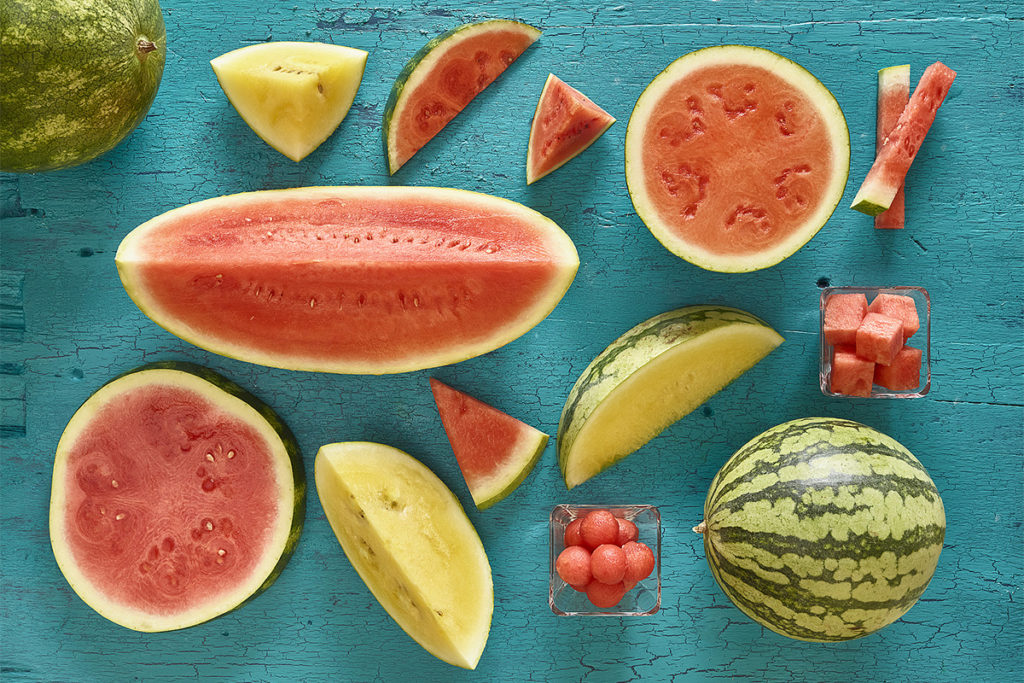Sponsored Content
5 Reasons Your Clients Should Eat Watermelon
This sweet treat deserves a spot in every kitchen, helping hydrate and fuel your fitness.

As a fitness professional, you know that nutrition plays a key role in your client’s journey to better health. Get them hooked on a healthy sweet treat with watermelon! This refreshing fruit is more than just a tasty snack; it’s packed with nutrition benefits for fit-minded folks:
1. Helps Hydrate
Every part of the body needs water to work properly, so clients should stay hydrated throughout the day and during exercise. While regular water consumption is a must, clients can also incorporate fluid-rich foods into their diet to help meet their needs. At 92 percent water by weight, watermelon is a delicious way for your clients to hydrate, whether freshly sliced, juiced, or blended in a smoothie.
2. May Assist With Weight Management
Fruit – especially watermelon – is often villainized by nutrition extremists who claim that its sugar content will lead to weight gain. While it’s true that we should avoid excess added sugar, the naturally occurring sugar in fruit comes packaged with many nutrients and is not linked to weight gain.
Numerous studies show that eating whole fruit reduces the risk of weight gain and may contribute to weight loss. In fact, a study in Nutrients found that snacking daily on watermelon – rather than cookies with the same amount of calories – led to a lower body weight and waist-to-hip ratio.
In other words, watermelon is a high-volume, calorie-controlled snack that can help clients with their weight management goals.
3. Provides Vitamin C
Vitamin C is vital to immune health and healing. It also functions as an antioxidant in the body (protecting cells against damage from free radicals) and is involved in the formation of collagen.
While it’s easy to meet Vitamin C needs with a balanced diet, about 7 percent of adults in the United States still have a Vitamin C deficiency, according to National Health and Nutrition Examination Survey (NHANES) data. Additional people may have sub-optimal intake but not reach a clinical deficiency.
Luckily, watermelon can go a long way in helping your clients get their daily dose of Vitamin C. Two cups of watermelon provide 25 percent of daily needs.
4. Supplies Lycopene
Lycopene is a powerful plant carotenoid that’s been linked to several potential health benefits. Research suggests (but does not prove) that lycopene may play a role in reducing the risk of certain types of cancer, improving cardiovascular health, and maintaining skin health.
A true lycopene leader, watermelon contains 12.7 mg per 2-cup serving – more than any other fresh fruit or vegetable commonly consumed in the United States. Fat helps increase lycopene absorption, so encourage your clients to try watermelon in dishes with healthy fats – like in a salad with avocado and olive oil, or in a salsa over a salmon fillet.
5. Contributes Carbs to Fuel Workouts
Carbohydrates are the body’s preferred source of fuel during intense exercise. It’s important that active individuals eat a diet which provides enough carbohydrates; the specific amount varies based on their body size, medical conditions, and exercise routine.
Watermelon provides natural carbohydrates to fuel fitness, along with health-promoting vitamins, minerals, and phytochemicals. Clients can enjoy watermelon as part of a pre-workout snack to support their upcoming sweat session, juice watermelon to drink during an endurance workout (add a pinch of salt to replace sodium losses in sweat), or eat watermelon after a workout to replenish glycogen stores.
The Final Word
Any way you slice it, watermelon is a nutrient-dense food that you can feel confident recommending to your clients. For creative ways to prepare and cook watermelon, be sure to check out these tasty recipes.






